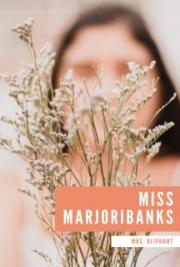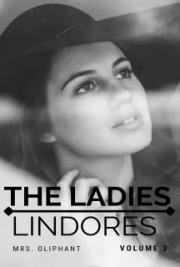CHAPTER XXXVIII
PERPETUAL LIGHT
Moonlight on the terrace—silvery, white, serene. Garth and Jane had stepped out into the brightness; and, finding the night so warm and still, and the nightingales filling the woods and hills with soft-throated music, they moved their usual fireside chairs close to the parapet, and sat there in restful comfort, listening to the sweet sounds of the quiet night.
The solitude was so perfect; the restfulness so complete. Garth had removed the cushion seat from his chair, and placed it on the gravel; and sat at his wife's feet leaning against her knees. She stroked his hair and brow softly, as they talked; and every now and then he put up his hand, drew hers to his lips, and kissed the ring he had never seen.
Long tender silences fell between them. Now that they were at last alone, thoughts too deep, joys too sacred for words, trembled about them; and silence seemed to express more than speech. Only, Garth could not bear Jane to be for a moment out of reach of his hand. What to another would have been: "I cannot let her out of my sight," was, to him, "I cannot let her be beyond my touch." And Jane fully understood this; and let him feel her every moment within reach. And the bliss of this was hers as well as his; for sometimes it had seemed to her as if the hunger in her heart, caused by those long weeks of waiting, when her arms ached for him, and yet she dared not even touch his hand, would never be appeased.
"Sweet, sweet, sweet—thrill," sang a nightingale in the wood. And Garth whistled an exact imitation.
"Oh, darling," said Jane, "that reminds me; there is something I do so want you to sing to me. I don't know what it is; but I think you will remember. It was on that Monday evening, after I had seen the pictures, and Nurse Rosemary had described them to you. Both our poor hearts were on the rack; and I went up early in order to begin my letter of confession; but you told Simpson not to come for you until eleven. While I was writing in the room above, I could hear you playing in the library. You played many things I knew—music we had done together, long ago. And then a theme I had never heard crept in, and caught my ear at once, because it was quite new to me, and so marvellously sweet. I put down my pen and listened. You played it several times, with slight variations, as if trying to recall it. And then, to my joy, you began to sing. I crossed the room; softly opened my window, and leaned out. I could hear some of the words; but not all. Two lines, however, reached me distinctly, with such penetrating, tender sadness, that I laid my head against the window-frame, feeling as if I could write no more, and wait no longer, but must go straight to you at once."
Garth drew down the dear hand which had held the pen that night; turned it over, and softly kissed the palm.
"What were they, Jane?" he said.
"'Lead us, O Christ, when all is gone,
Safe home at last.'"
"And oh, my darling, the pathos of those words, 'when all is gone'! Whoever wrote that music, had been through suffering such as ours. Then came a theme of such inspiring hopefulness and joy, that I arose, armed with fresh courage; took up my pen, and went on with my letter. Again two lines had reached me:"
"'Where Thou, Eternal Light of Light,
Art Lord of All.'"
"What is it, Garth? And whose? And where did you hear it? And will you sing it to me now, darling? I have a sudden wish that you should sing it, here and now; and I can't wait!"
Garth sat up, and laughed—a short happy laugh, in which all sorts of emotions were mingled.
"Jane! I like to hear you say you can't wait. It isn't like you; because you are so strong and patient. And yet it is so deliciously like you, if you FEEL it, to SAY it. I found the words in the Anthem-book at Worcester Cathedral, this time last year, at even-song. I copied them into my pocket-book, during the reading of the first lesson, I am ashamed to say; but it was all about what Balak said unto Balaam, and Balaam said unto Balak,—so I hope I may be forgiven! They seemed to me some of the most beautiful words I had ever read; and, fortunately, I committed them to memory. Of course, I will sing them to you, if you wish, here and now. But I am afraid the air will sound rather poor without the accompaniment. However, not for worlds would I move from here, at this moment."
So sitting up; in the moonlight, with his back to Jane, his face uplifted, and his hands clasped around one knee, Garth sang. Much practice had added greatly to the sweetness and flexibility of his voice; and he rendered perfectly the exquisite melody to which the words were set.
Jane listened with an overflowing heart.
"The radiant morn hath passed away,
And spent too soon her golden store;
The shadows of departing day
Creep on once more.
"Our life is but a fading dawn,
Its glorious noon, how quickly past!
Lead us, O Christ, when all is gone,
Safe home at last.
"Where saints are clothed in spotless white,
And evening shadows never fall;
where Thou, Eternal Light of Light,
Art Lord of All."
The triumphant worship of the last line rang out into the night, and died away. Garth loosed his hands, and leaned back, with a sigh of vast content, against his wife's knees.
"Beautiful!" she said. "Beautiful! Garthie—perhaps it is because YOU sang it; and to-night;—but it seems to me the most beautiful thing I ever heard. Ah, and how appropriate for us; on this day, of all days."
"Oh, I don't know," said Garth, stretching his legs in front of him, and crossing his feet the one over the other. "I certainly feel 'Safe home at last'—not because 'all is gone'; but because I HAVE all, in having you, Jane."
Jane bent, and laid her cheek upon his head. "My own boy," she said, "you have all I have to give—all, ALL. But, darling, in those dark days which are past, all seemed gone, for us both. 'Lead us, O Christ'—It was He who led us safely through the darkness, and has brought us to this. And Garth, I love to know that He is Lord of All—Lord of our joy; Lord of our love; Lord of our lives—our wedded lives, my husband. We could not be so safely, so blissfully, each other's, were we not ONE, IN HIM. Is this true for you also, Garth?"
Garth felt for her left hand, drew it down, and laid his cheek against it; then gently twisted the wedding ring that he might kiss it all round.
"Yes, my wife," he said. "I thank God, that I can say in all things: 'Thou, Eternal Light of Light, art Lord of All.'"
A long sweet silence. Then Jane said, suddenly: "Oh, but the music, Garthie! That exquisite setting. Whose is it? And where did you hear it?"
Garth laughed again; a laugh of half-shy pleasure.
"I am glad you like it, Jane," he said, "because I must plead guilty to the fact that it is my own. You see, I knew no music for it; the Anthem-book gave the words only. And on that awful night, when little Rosemary had mercilessly rubbed it in, about 'the lady portrayed'; and what her love MUST have been, and WOULD have been, and COULD have been; and had made me SEE 'The Wife' again, and 'The—' the other picture; I felt so bruised, and sore, and lonely. And then those words came to my mind: 'Lead us, O Christ, when all is gone, safe home at last.' All seemed gone indeed; and there seemed no home to hope for, in this world." He raised himself a little, and then leaned back again; so that his head rested against her bosom. "Safe home at last," he said, and stayed quite still for a moment, in utter content. Then remembered what he was telling her, and went on eagerly.
"So those words came back to me; and to get away from despairing thoughts, I began reciting them, to an accompaniment of chords."
"'The radiant morn hath passed away,
And spent too soon her golden store;
The shadows of departing day—'"
"And then—suddenly, Jane—I SAW it, pictured in sound! Just as I used to SEE a sunset, in light and shadow, and then transfer it to my canvas in shade and colour,-so I heard a SUNSET in harmony, and I felt the same kind of tingle in my fingers as I used to feel when inspiration came, and I could catch up my brushes and palette. So I played the sunset. And then I got the theme for life fading, and what one feels when the glorious noon is suddenly plunged into darkness; and then the prayer. And then, I HEARD a vision of heaven, where evening shadows never fall: And after that came the end; just certainty, and worship, and peace. You see the eventual theme, worked out of all this. It was like making studies for a picture. That was why you heard it over and over. I wasn't trying to remember. I was gathering it into final form. I am awfully glad you like it, Jane; because if I show you how the harmonies go, perhaps you could write it down. And it would mean such a lot to me, if you thought it worth singing. I could play the accompaniment—Hullo! Is it beginning to rain? I felt a drop on my cheek, and another on my hand."
No answer. Then he felt the heave, with which Jane caught her breath; and realised that she was weeping.
In a moment he was on his knees in front of her. "Jane! Why, what is the matter; Sweet? What on earth—? Have I said anything to trouble you? Jane, what is it? O God, why can't I see her!"
Jane mastered her emotion; controlling her voice, with an immense effort. Then drew him down beside her.
"Hush, darling, hush! It is only a great joy—a wonderful surprise. Lean against me again, and I will try to tell you. Do you know that you have composed some of the most beautiful music in the world? Do you know, my own boy, that not only your proud and happy wife, but ALL women who can sing, will want to sing your music? Garthie, do you realise what it means? The creative faculty is so strong in you, that when one outlet was denied it, it burst forth through another. When you had your sight, you created by the hand and EYE. Now, you will create by the hand and EAR. The power is the same. It merely works through another channel. But oh, think what it means! Think! The world lies before you once more!"
Garth laughed, and put up his hand to the dear face, still wet with thankful tears.
"Oh, bother the world!" he said. "I don't want the world. I only want my wife."
Jane put her arms around him. Ah, what a boy he was in some ways! How full of light-hearted, irrepressible, essential youth. Just then she felt so much older than he; but how little that mattered. The better could she wrap him round with the greatness of her tenderness; shield him from every jar or disillusion; and help him to make the most of his great gifts.
"I know, darling," she said. "And you have her. She is just ALL YOURS. But think of the wonderful future. Thank God, I know enough of the technical part, to write the scores of your compositions. And, Garth,—fancy going together to noble cathedrals, and hearing your anthems sung; and to concerts where the most perfect voices in the world will be doing their utmost adequately to render your songs. Fancy thrilling hearts with pure harmony, stirring souls with tone-pictures; just as before you used to awaken in us all, by your wonderful paintings, an appreciation and comprehension of beauty."
Garth raised his head. "Is it really as good as that, Jane?" he said.
"Dear," answered Jane, earnestly, "I can only tell you, that when you sang it first, and I had not the faintest idea it was yours, I said to myself: 'It is the most beautiful thing I ever heard.'"
"I am glad," said Garth, simply. "And now, let's talk of something else. Oh, I say, Jane! The present is too wonderful, to leave any possible room for thoughts about the future. Do talk about the present."
Jane smiled; and it was the smile of "The Wife"—mysterious; compassionate; tender; self-surrendering. She leaned over him, and rested her cheek upon his head.
"Yes, darling. We will talk of this very moment, if you wish. You begin."
"Look at the house, and describe it to me, as you see it in the moonlight."
"Very grey, and calm, and restful-looking. And so home-like, Garthie."
"Are there lights in the windows?"
"Yes. The library lights are just as we left them. The French window is standing wide open. The pedestal lamp, under a crimson silk shade, looks very pretty from here, shedding a warm glow over the interior. Then, I can see one candle in the dining-room. I think Simpson is putting away silver."
"Any others, Jane?"
"Yes, darling. There is a light in the Oriel chamber. I can see Margery moving to and fro. She seems to be arranging my things, and giving final touches. There is also a light in your room, next door. Ah, now she has gone through. I see her standing and looking round to make sure all is right. Dear faithful old heart! Garth, how sweet it is to be at home to-day; served and tended by those who really love us."
"I am so glad you feel that," said Garth. "I half feared you might regret not having an ordinary honeymoon—And yet, no! I wasn't really afraid of that, or of anything. Just, together at last, was all we wanted. Wasn't it, my wife?"
"All."
A clock in the house struck nine.
"Dear old clock," said Garth, softly. "I used to hear it strike nine, when I was a little chap in my crib, trying to keep awake until my mother rustled past; and went into her room. The door between her room and mine used to stand ajar, and I could see her candle appear in a long streak upon my ceiling. When I saw that streak, I fell asleep immediately. It was such a comfort to know she was there; and would not go down again. Jane, do you like the Oriel chamber?"
"Yes, dear. It is a lovely room; and very sacred because it was hers. Do you know, Aunt Georgina insisted upon seeing it, Garth; and said it ought to be whitened and papered. But I would not hear of that; because the beautiful old ceiling is hand-painted, and so are the walls; and I was certain you had loved those paintings, as a little boy; and would remember them now."
"Ah, yes," said Garth, eagerly. "A French artist stayed here, and did them. Water and rushes, and the most lovely flamingoes; those on the walls standing with their feet in the water; and those on the ceiling, flying with wings outspread, into a pale green sky, all over white billowy clouds. Jane, I believe I could walk round that room, blindfold—no! I mean, as I am now; and point out the exact spot where each flamingo stands."
"You shall," said Jane, tenderly. These slips when he talked, momentarily forgetting his blindness, always wrung her heart. "By degrees you must tell me all the things you specially did and loved, as a little boy. I like to know them. Had you always that room, next door to your mother's?"
"Ever since I can remember," said Garth. "And the door between was always open. After my mother's death, I kept it locked. But the night before my birthday, I used to open it; and when I woke early and saw it ajar, I would spring up, and go quickly in; and it seemed as if her dear presence was there to greet me, just on that one morning. But I had to go quickly, and immediately I wakened; just as you must go out early to catch the rosy glow of sunrise on the fleeting clouds; or to see the gossamer webs on the gorse, outlined in diamonds, by the sparkling summer dew. But, somehow, Margery found out about it; and the third year there was a sheet of writing-paper firmly stuck to the pincushion by a large black-headed pin, saying, in Margery's careful caligraphy: 'Many happy returns of the day, Master Garthie.' It was very touching, because it was meant to be so comforting and tactful. But it destroyed the illusion! Since then the door has been kept closed."
Another long sweet silence. Two nightingales, in distant trees, sang alternately; answering one another in liquid streams of melody.
Again Garth turned the wedding ring; then spoke, with his lips against it.
"You said Margery had 'gone through.' Is it open to-night?" he asked.
Jane clasped both hands behind his head—strong, capable hands, though now they trembled a little—and pressed his face against her, as she had done on the terrace at Shenstone, three years before.
"Yes, my own boy," she said; "it is."
"Jane! Oh, Jane—" He released himself from the pressure of those restraining hands, and lifted his adoring face to hers.
Then, suddenly, Jane broke down. "Ah, darling," she said, "take me away from this horrible white moonlight! I cannot bear it. It reminds me of Shenstone. It reminds me of the wrong I did you. It seems a separating thing between you and me—this cruel brightness which you cannot share."
Her tears fell on his upturned fate.
Then Garth sprang to his feet. The sense of manhood and mastery; the right of control, the joy of possession, arose within him. Even in his blindness, he was the stronger. Even in his helplessness, for the great essentials, Jane must lean on him. He raised her gently, put his arms about her, and stood there, glorified by his great love.
"Hush, sweetest wife," he said. "Neither light nor darkness can separate between you and me: This quiet moonlight cannot take you from me; but in the still, sweet darkness you will feel more completely my own, because it will hold nothing we cannot share. Come with me to the library, and we will send away the lamps, and close the curtains; and you shall sit on the couch near the piano, where you sat, on that wonderful evening when I found you, and when I almost frightened my brave Jane. But she will not be frightened now, because she is so my own; and I may say what I like; and do what I will; and she must not threaten me with Nurse Rosemary; because it is Jane I want—Jane, Jane; just ONLY Jane! Come in, beloved; and I, who see as clearly in the dark as in the light, will sit and play THE ROSARY for you; and then Veni, Creator Spiritus; and I will sing you the verse which has been the secret source of peace, and the sustaining power of my whole inner life, through the long, hard years, apart."
"Now," whispered Jane. "Now, as we go."
So Garth drew her hand through his arm; and, as they walked, sang softly:
"Enable with perpetual light,
The dulness of our blinded sight;
Anoint and cheer our soiled face
With the abundance of Thy grace.
Keep far our foes; give peace at home;
Where Thou art Guide, no ill can come."
Thus, leaning on her husband; yet guiding him as she leaned; Jane passed to the perfect happiness of her wedded home.







